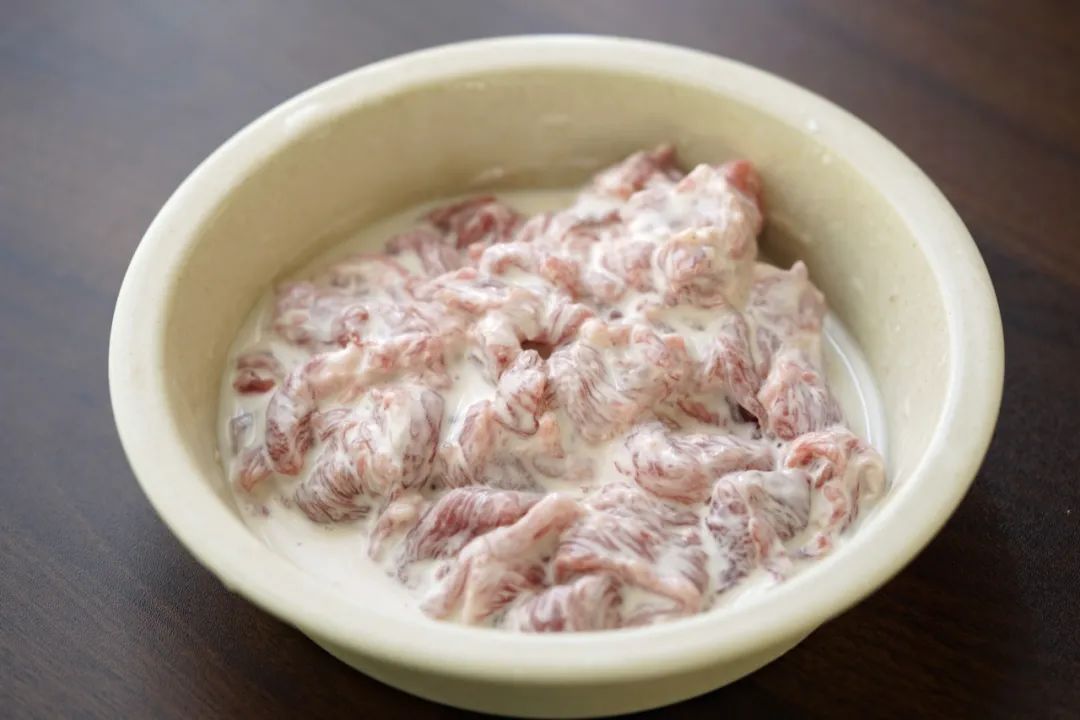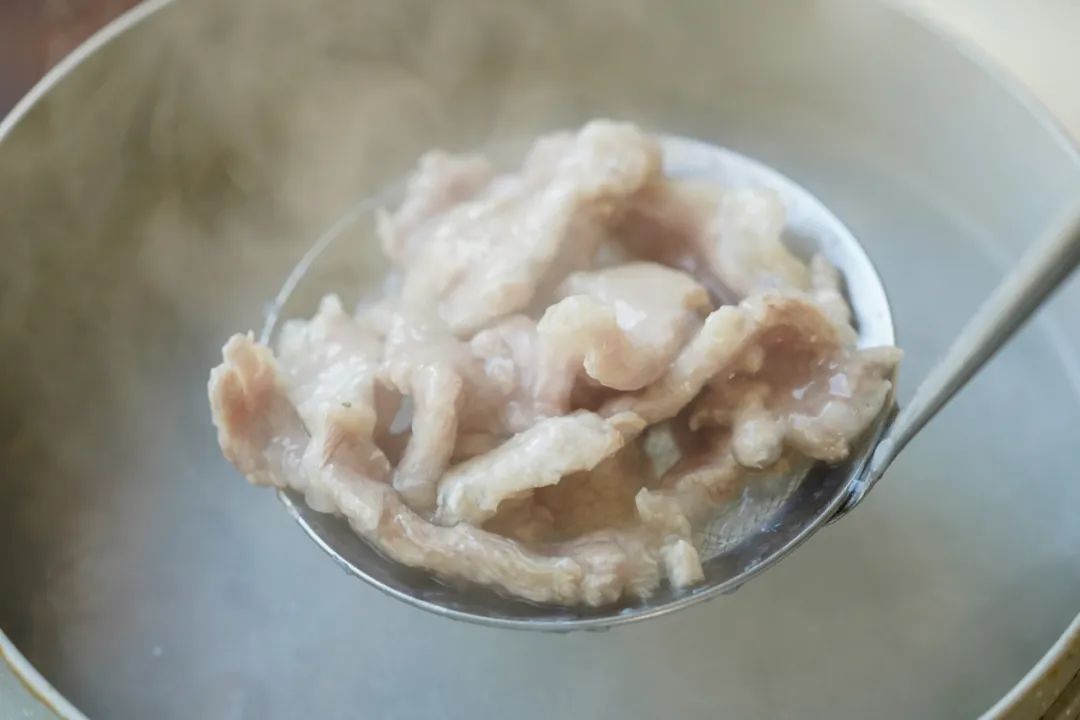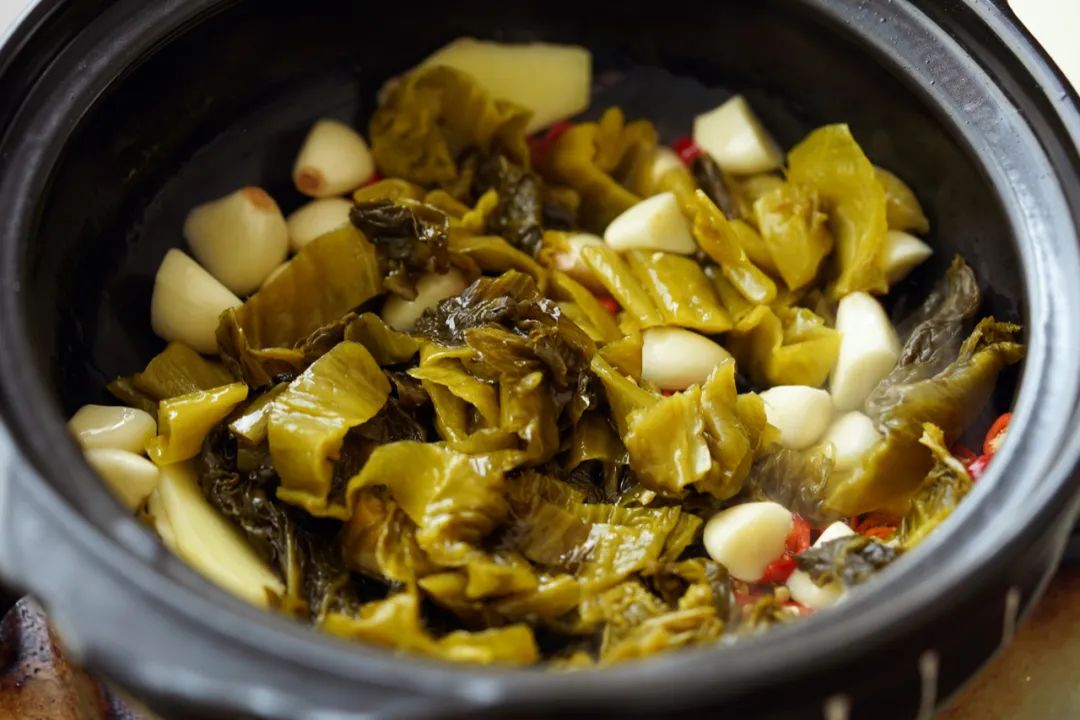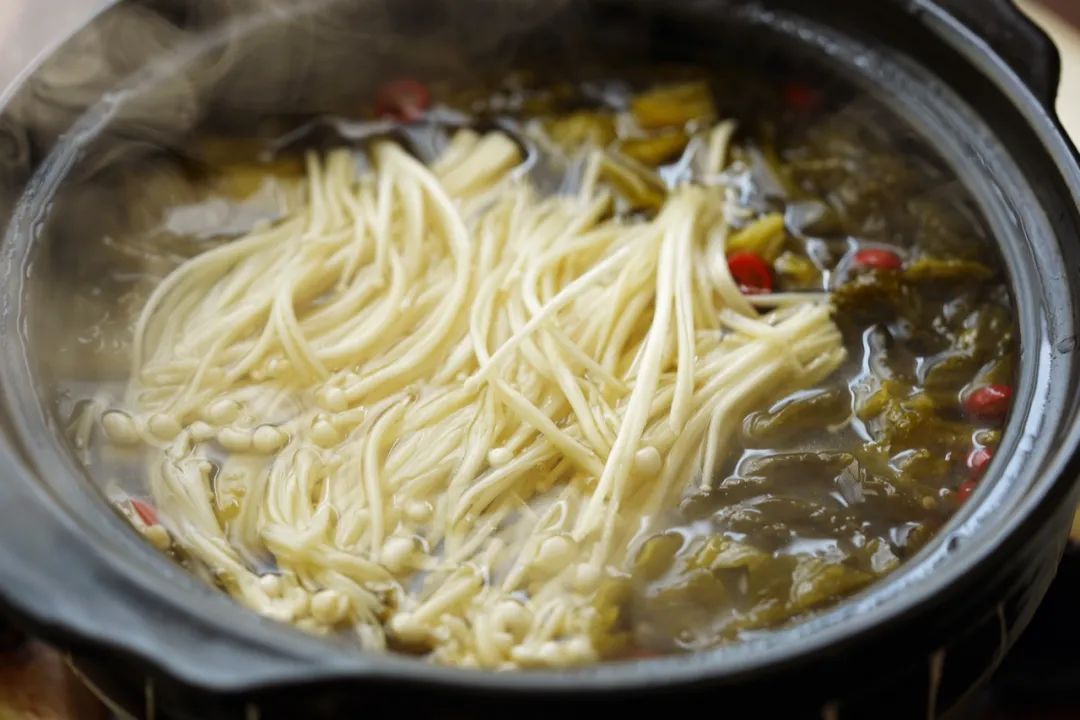html
Sour Cabbage & Tender Pork Stew: A Comforting Dish to Elevate Your Rice Game
Let’s dive into the secrets of making this dish, where silky-smooth pork slices meet tangy, spicy broth for a meal that’s pure comfort. Whether you’re a novice or seasoned cook, this recipe promises to become a weeknight favorite.
1. The Secret to Ultra-Tender Pork

The magic lies in sweet potato starch slurry. When mixed with water, this starch forms a thick paste that coats each slice of pork. As the pork cooks in boiling water, the starch gelatinizes, creating a glossy, protective layer that locks in moisture. The result? Pork so tender it practically melts in your mouth.
Pro Tip:
- Use a 1:1 ratio of starch to meat for optimal texture.
- Add the starch slurry to the pork just before cooking to prevent clumping.
2. Step-by-Step Recipe
Ingredients
- 300g pork shoulder or pork belly (sliced thinly)
- 50g sweet potato starch (do not substitute with cornstarch for best results)
- 150g sour cabbage (pickled napa cabbage preferred)
- 1 tbsp minced garlic
- 1 tbsp chopped ginger
- 1-2 fresh chili peppers (sliced; adjust for spice preference)
- 2 tbsp light soy sauce
- 1/2 tsp white pepper
- Salt (to taste)
- 400ml water or broth
Instructions
Step 1: Marinate the Pork

- Slice the pork into thin, bite-sized pieces.
- In a bowl, combine the pork with 1 tbsp ginger-scallion water, 1/2 tbsp cooking wine, 1/3 tsp salt, and 1/5 tsp white pepper. Mix well and let marinate for 15 minutes.
Why This Works: Marinating with aromatics and alcohol tenderizes the meat and removes gaminess.
Step 2: Prepare the Starch Slurry
- Mix 50g sweet potato starch with 60ml water until smooth.
- Pour the slurry over the marinated pork and toss to coat evenly.
Key Insight: The slurry must be thick enough to cling to the pork without dripping. Adjust water gradually if needed.
Step 3: Cook the Pork

- Bring a large pot of water to a boil.
- Gently drop the pork slices into the water one by one to prevent sticking.
- Cook until the pork turns opaque and the starch coating becomes translucent (about 2-3 minutes). Remove and set aside.
Pro Tip: Avoid overcrowding the pot—cook in batches if necessary.
Step 4: Build the Sour Broth

- Heat 1 tbsp oil in a pot. Add garlic, ginger, chili peppers, and 3 pickled peppers. Sauté until fragrant.
- Add 150g chopped sour cabbage and stir-fry for 2-3 minutes to intensify its tangy flavor.
- Pour in 400ml water and bring to a boil. Season with 2 tbsp light soy sauce, 1/5 tsp white pepper, and 1/3 tsp salt.
Ingredient Notes:
- For authentic sourness, use naturally fermented napa cabbage (available at Asian grocery stores).
- Adjust sourness with a splash of rice vinegar if needed.
Step 5: Assemble the Dish

- Add 70g enoki mushrooms to the broth and simmer for 30 seconds.
- Return the cooked pork to the pot and heat through for 1 minute.
- Garnish with chopped scallions.
Serving Suggestion: Ladle the stew over steamed rice, ensuring each bite includes pork, mushrooms, and a spoonful of broth.
3. Why This Dish Shines
- Texture Contrast: The tender pork and crunchy sour cabbage create a satisfying mouthfeel.
- Flavor Balance: The tanginess of the cabbage cuts through the richness of the pork, while chili adds a gentle heat.
- Versatility: Customize with tofu, glass noodles, or leafy greens for variation.
4. Elevate Your Dish with a Premium Broth

For an even richer flavor, try a slow-cooked bone broth base infused with fermented mustard greens. This adds depth and umami, transforming the dish into a restaurant-quality meal.
Bonus Recipe: Golden Sour Fish Stew
- Replace pork with fish fillets.
- Simmer in the same broth with added 100g mashed yellow peas for a creamy texture.
5. Cultural Roots & Modern Twists

This dish draws inspiration from Northern Chinese cuisine, where pickled cabbage is a winter staple. Traditionally, families ferment napa cabbage in salt brine for weeks to achieve its signature tang. Modern adaptations, like using pre-made sour cabbage or instant broth bases, make it accessible for busy cooks.
6. Common Mistakes to Avoid
- Overcooking the Pork: Remove it as soon as it turns opaque to retain tenderness.
- Skipping the Starch Slurry: This step is non-negotiable for the dish’s signature texture.
- Using Non-Fermented Cabbage: Fresh cabbage lacks the sour punch—opt for pickled varieties.
7. Pairing Suggestions
- With Rice: The stew’s broth soaks into rice, making each bite flavorful.
- As a Noodle Soup: Add cooked glass noodles or udon for a hearty meal.
- Side Dishes: Serve with steamed bok choy or a crisp cucumber salad.
8. Nutritional Benefits
- High Protein: Pork provides essential amino acids for muscle repair.
- Probiotics: Fermented cabbage supports gut health.
- Low-Calorie Option: Skip the starch slurry for a lighter version (though less silky).
9. FAQ
Q: Can I use cornstarch instead of sweet potato starch?
A: While possible, cornstarch creates a thinner coating. Sweet potato starch is preferred for its glossy finish.
Q: How long does leftover stew last?
A: Store in the fridge for up to 3 days. Reheat gently to avoid overcooking the pork.
10. Final Tips for Perfection
- Prep Ahead: Marinate the pork and chop vegetables in advance for quicker assembly.
- Adjust Heat: Add chili oil or fresh jalapeños for extra spice.
- Garnish Creatively: Toasted sesame seeds or cilantro add freshness.

This Sour Cabbage and Tender Pork Stew is more than a meal—it’s a flavor-packed experience that bridges tradition and convenience. Save this recipe, stock up on sour cabbage, and get ready to wow your taste buds!
